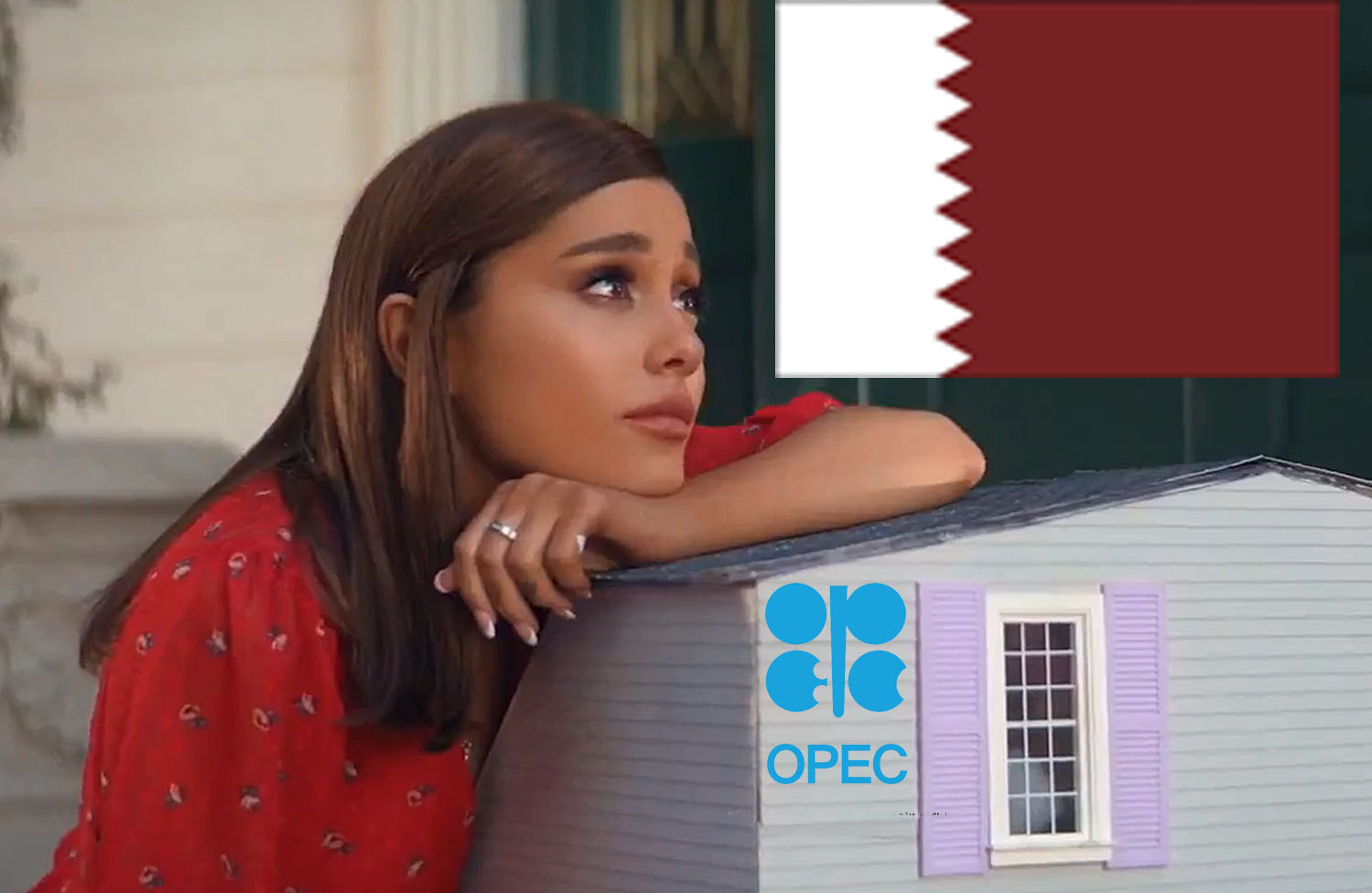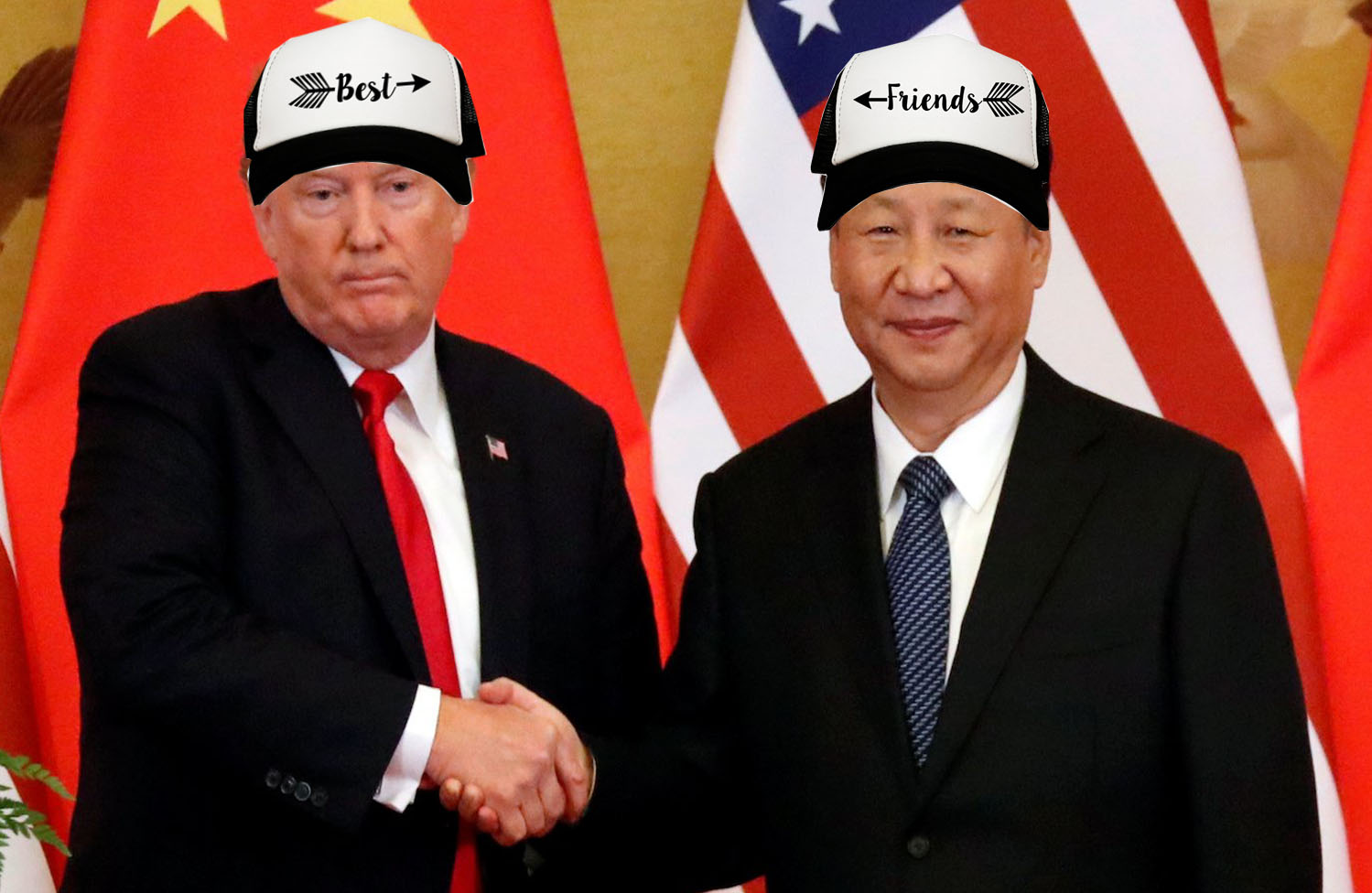“It’s not you, it’s me…” For those of you who have the displeasure of hearing this rhetoric as the key reasoning for ending a relationship, I can almost guarantee that the issuer of the statement had other reasons, but elected not to disclose them to you in an effort to save your feelings. This sense of ambiguity provides the ideal copout for the person who uses the phrase while leaving the listening party totally caught off guard. I can only imagine how the Organization of the Petroleum Exporting Countries (OPEC) must feel after discovering on Monday that Qatar plans on leaving OPEC in the next few months.
Doha, the capital city of Qatar, has historically offered little to no contention in terms of oil production, with oil output of 600,000 barrels per day (bpd), compared to its closest OPEC member, Saudi Arabia, which produces roughly 11 million bpd. However, where Doha comes up short with crude, they are a major player in terms of liquefied natural gas (LNG) output. For those of you who seemed a bit confused between crude and natural gas, bare with me.
Both crude oil and natural gas are made from the dead remains of plants and animals, more pleasantly referred to as ‘fossil fuels.’ In terms of fueling our cars, planes, and other transportation devices, both crude and natural gas are used, but more vehicles are being designed to use crude oil because it’s significantly cheaper due to global abundance. Having said that Qatar wants to focus on their production of LNG to bolster their chances in the global crude market.
“The withdrawal decision reflects Qatar’s desire to focus its efforts on plans to develop and increase its natural gas production. Achieving our ambitious growth strategy will undoubtedly require focused efforts, commitment and dedication to maintain and strengthen Qatar’s position as the leading natural gas producer.”
–Saad Sherida Al-Kaabi, Minister of State for Energy Affairs, Qatar
When OPEC was founded, it was purposed with the task of coordinating and unifying “the petroleum policies of its members” and ensuring “the stabilization of oil markets in order to secure an efficient, economic and regular supply of petroleum to consumers.” Although Qatar officials have made it clear that their decision to leave OPEC has nothing to do with politics or leaving the oil business, Al-Kaabi, the country’s energy minister, said that he feels OPEC is controlled largely “by a country,” a reference many analysts believe to be targeted at Saudi Arabia. He went on to share that he knows “a lot of people will politicize” Qatar’s departure from OPEC, but “this was purely a decision on what’s right for Qatar long term. It’s a strategy decision.”
The crude market has seen countries like Saudi Arabia, Russia, and the United States emerge as the three most dominant forces in the world, and investors in the space have feared that this over dominance has led to near-30% price drop of crude which has occurred since the industry’s October peak.
Earlier this month President Trump announced plans for imposing sanctions on Iranian oil production. The plan, via the sanctions, was for Iran, the world’s fourth-largest producer of crude, to slowly recede from the market, and in turn, Saudi Arabia would ramp up their own production of crude. On paper, Trump’s sanctions seemed fool-proof, and in anticipation, the price of Brent crude, the international benchmark, went above $86 in early October, according to the Economist.
Instead, the oil industry failed to meet the expectations of the Trump administration. Last week, the price of Brent crude remained at $66.53 per barrel, and West Texas Intermediate, the American oil benchmark, has suffered the longest uninterrupted decline in thirty years. The downtrend for the U.S. crude benchmark, according to MarketWatch, is on the brink of forming a death cross — “a chart formation in an asset that many market technicians believe marks the point that a short-term decline morphs into a longer-term downtrend.”





